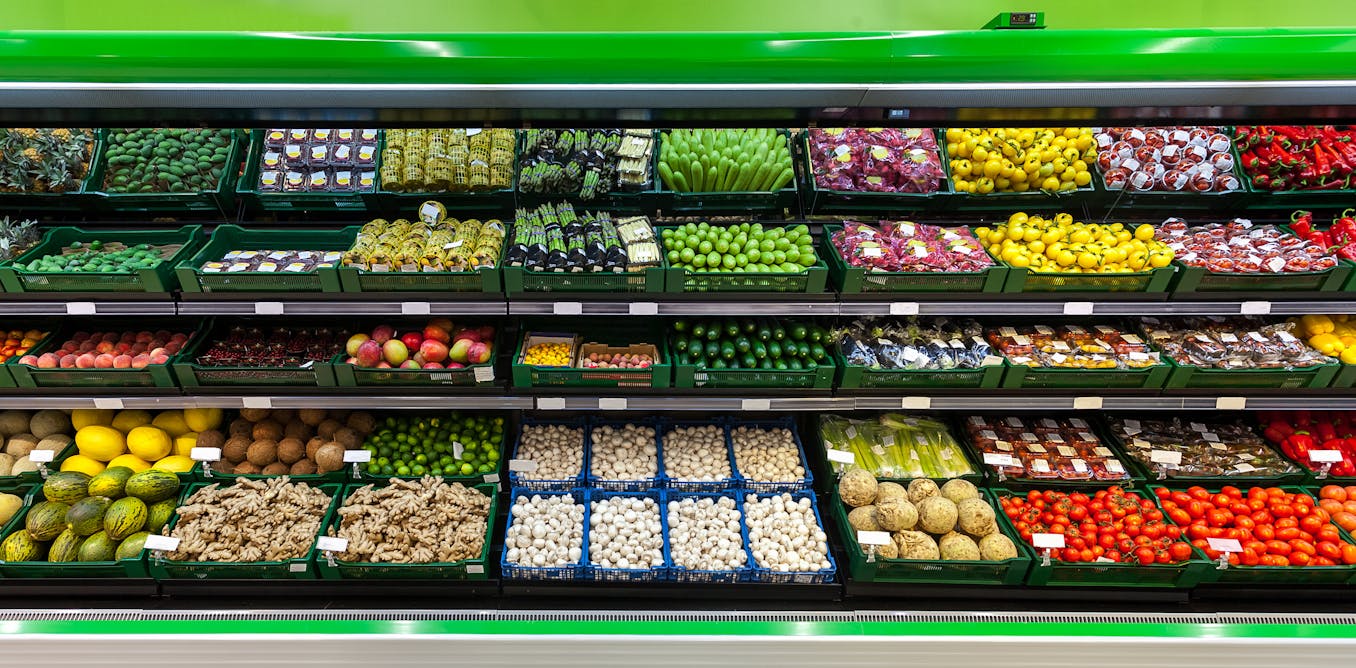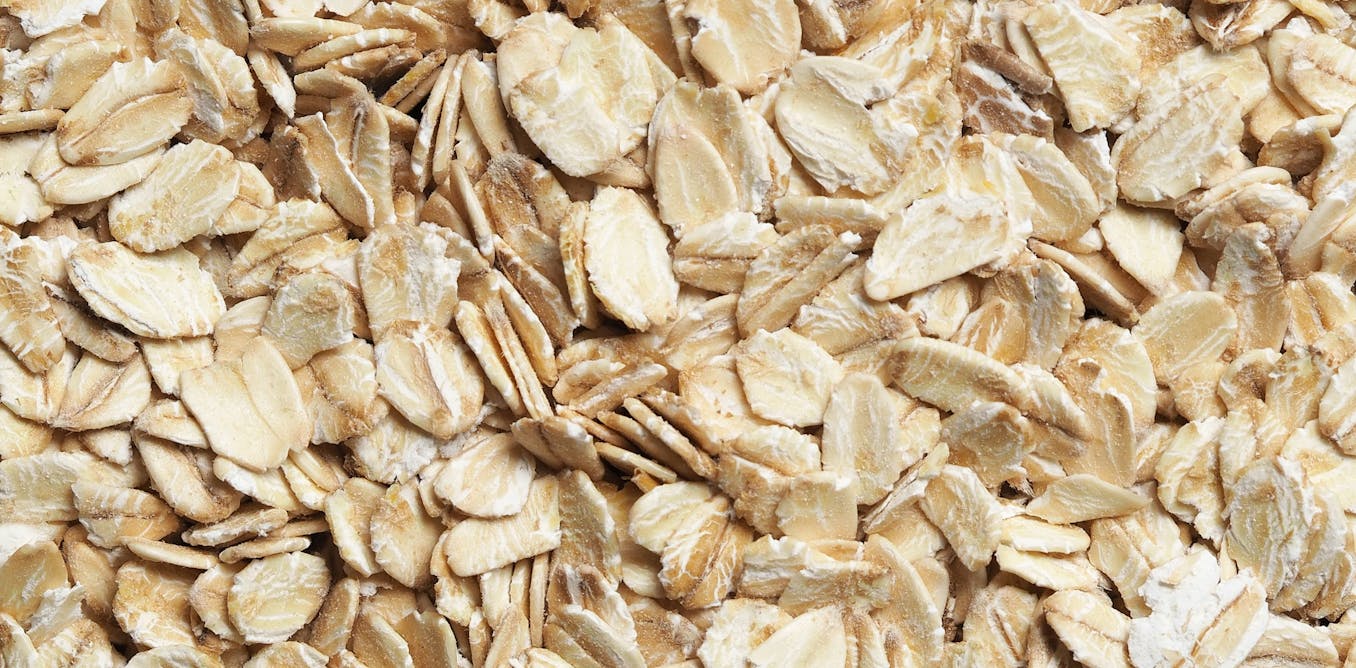The boss of a British supermarket has claimed that the “era of cheap food is over”. But what he calls cheap, many people still find expensive.
Rising food costs have been one of the key drivers of soaring UK inflation over the last few years, and some products, like olive oil, have reached record prices.
For the most deprived fifth of UK households, it is estimated that they would need to spend an 50% of their disposable income to eat a healthy diet.
But whether or not you think food is too expensive or too cheap, the reality is that neither customers nor retailers are paying the true price of food. For what we eat now incurs significant hidden costs to the environment and society – and these are not being accounted for.
From an environmental perspective for example, food production accounts for over a quarter (26%) of global greenhouse gas emissions. In the UK, that figure is around 30%, while a heavy reliance on food imports (the UK buys in around 40% of its fresh fruit and vegetables) means extra emissions from transport.
That reliance from abroad makes the UK more vulnerable to disruptions and price fluctuations. Recently, the price of imported food products has been rising at twice the rate of that produced domestically.
From an ethical standpoint, we need to acknowledge that in many sectors, from coffee farming to fishing, the food supply chain features poverty and modern slavery. In the UK, around 13% of all forced labour victims came from the food industry or agricultural sector..
So the heavy costs – to our bank accounts, to the environment, and to society – seem clear. But the question is, should the consumers pay even more to the companies that sell most of the food we eat.
For they already have immense power and control over the problematic supply chain. And there are plenty of steps they could take to make that chain more efficient and ethical.
Reducing waste would be a good place to start. In the UK, 70% of the food wasted could have been eaten.
Much of this wastage occurs at the retail stage due to issues such as products being discarded because they don’t match up to particular aesthetic standard. There is also a lot of waste at the food processing level, caused by overstocking because of poor forecasting of demand.
Power hungry
Then there is the amount of sway big supermarkets have over farmers and producers, as it’s the supermarkets that set the standards of what sells, perhaps being reluctant to sell “ugly” vegetables for example.
The imbalance of power between big retailers and producers, means many feel farmers don’t get a fair deal. And farmers facing financial uncertainty may in turn be cautious about adopting “agriTech” – using technology in farming to improve data analytics and automation, which could increase productivity and lower costs.
Suwin66/Shutterstock
Costs could also be reduced by a more efficient approach to the amount of work involved in getting products on to shelves. Research from the US indicates some foods go through as many as 33 separate handling processes – such as sorting, grading, cleaning, labelling and storing – before reaching consumers in a supermarket.
There seems plenty of scope for the food industry to reduce waste, streamline production and improve efficiency – all of which could lower costs and reduce its impact on the environment.
An affordable food system can only be achieved with smoother supply chains, more power given to farmers and local retailers, and by optimising operations and logistics.
One important step would be to develop shorter, more localised supply chains which will increase food transparency (knowing where your groceries have come from), reduce food miles and emissions, and support regional economies. Separately, a shift towards more sustainable and regenerative farming methods would help reduce the environmental impact of food production while enhancing resilience and productivity.
Fixing the way food is produced, distributed and sold requires a multi-pronged approach that addresses a wide variety of issues. It’s a big task, but an urgent one, as it would entail finally starting to pay for the social and environmental damage done by what we choose to eat and drink.
And it will require more responsibility being taken by the supermarkets – not just charging their customers to fund the same old broken system.

The post “Today’s record prices don’t reflect the true cost of food – but there are alternatives to asking consumers to pay even more” by Behzad Hezarkhani, Professor in Operations Management, University of Southampton was published on 05/20/2024 by theconversation.com




































